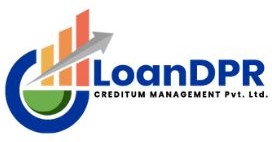Debt consolidation loans are becoming increasingly popular in the USA, offering a practical solution for individuals who want to manage their debt more effectively. Whether it’s multiple credit cards, personal loans, or other forms of debt, a consolidation loan can help streamline payments and potentially save on interest.
This comprehensive guide will explain everything you need to know about debt consolidation loans—how they work, the benefits, types, eligibility, and tips to make an informed decision. If you’re a beginner, this article will give you the knowledge to decide whether a debt consolidation loan is right for you.
Table of Contents
- What is a Debt Consolidation Loan?
- How Does a Debt Consolidation Loan Work?
- Types of Debt Consolidation Loans
- Pros and Cons of Debt Consolidation Loans
- Eligibility Criteria for Debt Consolidation Loans
- How to Apply for a Debt Consolidation Loan
- Alternatives to Debt Consolidation Loans
- Common Mistakes to Avoid
- FAQs
1. What is a Debt Consolidation Loan?
A debt consolidation loan is a type of loan that allows you to combine multiple debts into a single loan. Instead of making multiple payments to different creditors, you make one payment to your debt consolidation lender. The goal of consolidating debt is to simplify payments, lower interest rates, and ultimately pay off the debt faster.
Example:
Let’s say you have credit card debt, a personal loan, and medical bills. Instead of paying them separately, a debt consolidation loan combines them into one monthly payment, ideally with a lower interest rate.
2. How Does a Debt Consolidation Loan Work?
The process of debt consolidation is simple:
- Borrow a new loan: First, you take out a new loan that’s large enough to pay off all your existing debts.
- Pay off existing debts: Use the funds from the loan to clear your outstanding balances with credit cards, personal loans, and other creditors.
- Make a single payment: Now, you only have one monthly payment to the debt consolidation lender, usually at a lower interest rate than the combined rates of your previous debts.
Benefits of a Debt Consolidation Loan:
- Simplifies debt management: One payment is easier to manage than multiple.
- Lower interest rate: If you have high-interest debt, a consolidation loan can save you money in interest.
- Fixed repayment schedule: You know exactly when your debt will be paid off.
3. Types of Debt Consolidation Loans
There are different types of debt consolidation loans available in the USA, depending on your financial situation and the kind of debt you have.
1. Unsecured Personal Loans
These are the most common form of debt consolidation loans. They do not require collateral, making them accessible for individuals who don’t own assets like a home or car. The interest rate is based on your credit score and financial profile.
2. Home Equity Loans
If you own a home, you can take out a home equity loan or home equity line of credit (HELOC) to consolidate debt. These loans are secured against the value of your home, which typically results in lower interest rates. However, your home is at risk if you fail to make payments.
3. Balance Transfer Credit Cards
Some credit card companies offer balance transfer cards with low or 0% interest for an introductory period. You can transfer your credit card debt to this new card and pay it off without interest for a certain period. However, fees may apply, and interest rates may increase after the promotional period ends.
4. Debt Management Plans (DMPs)
A debt management plan is not a loan, but a program offered by credit counseling agencies. The agency negotiates with your creditors for lower interest rates and arranges a single monthly payment. This option is ideal for individuals with poor credit who may not qualify for loans.
4. Pros and Cons of Debt Consolidation Loans
Like any financial decision, taking out a debt consolidation loan comes with advantages and disadvantages.
Pros:
- Simplified Payments: Managing a single payment is easier than juggling multiple accounts.
- Lower Interest Rates: Many people consolidate high-interest debts, like credit card debt, to save on interest over time.
- Fixed Payment Terms: With a fixed loan, you’ll know exactly how much you owe each month and when the debt will be paid off.
- Boost Credit Score: Consolidating debt can improve your credit score by lowering your credit utilization ratio and helping you make timely payments.
Cons:
- Risk of Collateral: For secured loans like home equity loans, your home or other assets are at risk if you default.
- Origination Fees: Many debt consolidation loans come with fees, such as origination fees, that increase the cost of borrowing.
- Longer Repayment Terms: While a longer repayment term reduces your monthly payments, it can result in paying more interest over time.
- Temptation to Re-accumulate Debt: After consolidating, many borrowers fall into the trap of accumulating more debt if they don’t change their spending habits.
5. Eligibility Criteria for Debt Consolidation Loans
To qualify for a debt consolidation loan in the USA, you need to meet certain requirements. While each lender may have its own criteria, here are the general factors:
1. Credit Score
Your credit score is a key factor in loan approval. Typically, a score of 670 or higher will help you qualify for an unsecured personal loan at favorable terms.
2. Income and Employment
Lenders want to ensure you have a stable income to make timely payments. You’ll need to provide proof of income, such as pay stubs or tax returns.
3. Debt-to-Income Ratio
This ratio compares your monthly debt payments to your gross income. A low debt-to-income ratio (under 36%) improves your chances of getting approved.
4. Loan Amount
The loan amount you request should be realistic based on your ability to repay and your credit history.
6. How to Apply for a Debt Consolidation Loan
The application process for a debt consolidation loan is straightforward:
Step 1: Check Your Credit Score
Before applying, check your credit score to get an idea of what interest rate you might qualify for. You can get a free credit report from major credit bureaus.
Step 2: Research Lenders
Compare different lenders to find the best loan terms, including interest rates, fees, and repayment periods. Don’t forget to check for any promotional offers.
Step 3: Gather Documentation
Lenders will typically ask for:
- Proof of income (e.g., pay stubs, tax returns)
- Identification (e.g., driver’s license, passport)
- List of debts you plan to consolidate
- Bank statements
Step 4: Submit Application
You can apply online or in person. After submitting your application and documents, the lender will evaluate your financial history and approve or reject your application.
Step 5: Loan Disbursement
Once approved, the loan amount will either be sent to you or directly to your creditors to pay off the debt. After that, you will start making monthly payments to the lender.
7. Alternatives to Debt Consolidation Loans
If a debt consolidation loan isn’t the right fit, consider these alternatives:
1. Debt Settlement
Debt settlement involves negotiating with creditors to pay a lump sum that’s less than what you owe. However, this can hurt your credit score and may involve fees.
2. Credit Counseling
Credit counseling agencies can help you set up a debt management plan, negotiate lower interest rates, and create a budget.
3. Bankruptcy
Bankruptcy is a last resort for individuals with overwhelming debt. It can discharge most types of debt but will severely impact your credit score for years.
8. Common Mistakes to Avoid
When applying for a debt consolidation loan, avoid these common pitfalls:
- Ignoring the Loan’s Total Cost: Don’t focus solely on the monthly payment. Consider the total interest and fees over the life of the loan.
- Taking on New Debt: Avoid accumulating more debt after consolidation, as it defeats the purpose of the loan.
- Overlooking Fees: Check for origination fees, prepayment penalties, and other hidden costs before signing.
- Not Addressing the Root Cause: Debt consolidation is a tool, not a cure. If overspending or financial mismanagement is the issue, address these habits to avoid future debt problems.
9. FAQs
Q1: Can I consolidate both secured and unsecured debts?
A: Most debt consolidation loans focus on unsecured debt, like credit cards and personal loans. For secured debts like mortgages, consider refinancing options instead.
Q2: Will a debt consolidation loan affect my credit score?
A: Initially, applying for the loan may cause a temporary dip in your credit score. However, consolidating debt and making on-time payments can improve your score in the long term.
Q3: Is debt consolidation the same as debt settlement?
A: No, debt consolidation combines multiple debts into one loan, while debt settlement involves negotiating with creditors to pay less than the full amount owed.
Q4: What happens if I can’t repay the debt consolidation loan?
A: If you default on the loan, it can negatively affect your credit score and, in the case of secured loans, result in the loss of collateral.
Q5: How long does it take to pay off a debt consolidation loan?
A: The repayment period varies depending on the loan terms. Most debt
Wait 30 seconds for the next page.

